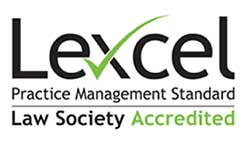The area of leasehold enfranchisement has been amended and expanded numerous times since its introduction in 1967. For those keen to explore lease extension and enfranchisement, the process can seem a daunting one. The law in this area is complex and confusing. With strict statutory timeframes, and severe consequences for failure to adhere to these, it is essential to get the right legal guidance when seeking to explore the leasehold enfranchisement process. By instructing a solicitor from the Conveyancing Team at Wilford Smith at the earliest possible stage, you can be certain that you are receiving the highest quality advice to support you. Call us today to find out how we can help.
What is leasehold enfranchisement?
If you own a leasehold property, you are only the owner for a fixed period of time, not indefinitely. You will have a legal agreement with the landlord, called a “lease”, which will tell you for how long you own the property.
Leasehold enfranchisement gives tenants of flats, acting together, the right to buy the freehold of their building. Under the provisions found in the Leasehold Reform, Housing and Urban Development Act 1993, a building must meet a number of requirements in order to qualify for leasehold enfranchisement. These requirements include:
the building is an independent building, or is part of a building that is capable of independent development;
the building contains two or more flats; and
at least two-thirds of the flats in the building are held by qualifying tenants.
To be considered a qualifying tenant, you must have a long lease, that is a lease that, when it was originally granted, was for a period of over 21 years. You will not be a qualifying tenant if you own three or more flats in the building, or if you hold a business lease.
A building will not qualify if for example:
it is comprised of four units or less and has a “resident freeholder”; and
more than 25% of the internal floor space is used for non-residential purposes, excluding common parts of the building;
Although rare, houses may also be leasehold in certain parts of England and Wales. Under the Leasehold Reform Act 1967, leasehold property tenants may have the right to buy the freehold of their property, as well as the right to extend the lease. In most cases, owners of a leasehold house will have the right to buy the freehold if they have owned the lease for two years prior to making an application.
What are the benefits to enfranchising?
There are a number of benefits should you choose to enfranchise. Doing so enables tenants, who collectively own the freehold, to grant themselves long leases at a much lower price, as well as removing ground rent. Tenants will be able to live in their property for as long as they wish. If a building is tenant-owned, this will also be an attractive benefit when seeking to sell the property.
What is the process for leasehold enfranchisement?
If seeking to enfranchise, a tenant is required to serve their landlord with a “notice of tenant’s claim” (NTC). With some exceptions, this can be done at any point during the continuation of the tenant’s long lease. When you instruct a solicitor in relation to a freehold enfranchisement, they will carry out a number of actions on your behalf. These will often include:
investigating the eligibility of the claim;
organising the enfranchisement;
selecting the nominee purchaser;
carrying out an assessment of the purchase price;
serving the initial notice; and
preparing for and carrying out all subsequent procedures.
Contact our Leasehold Enfranchisement Solicitors, Sheffield
With years of experience, the Residential Conveyancing Solicitors at Wilford Smith are best placed to advise landlords and tenants in relation to leasehold enfranchisement. Through our exceptional client care, we aim to make this process as simple and stress-free as possible. We will keep you up to date with developments throughout, and will ensure that you are given high quality and practical advice at all times.
Our Property Development Teams are based in Sheffield and provide expert services to clients throughout England and Wales. Find out more information on our fees here. Contact us today on 0808 164 1028 to find out how we can help.



